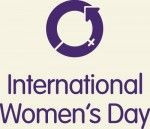International Women’s Day

March 8 was the 101st celebration of International Women’s Day. Colgate celebrated it through Women’s Studies Brownbags and film screenings, as well as an Oxfam America at Colgate awareness-raising-through-cookies event. However, for many at Colgate, International Women’s Day came and went uncelebrated and unknown. At a university like Colgate, where women outnumber men in the student body, and all departments welcome all sexes, Internation-al Women’s Day may seem irrelevant. But International Women’s Day is an important reminder that globally, and even in this country, women still have unequal education, employment, politi-cal and quality of life opportunities.
International Women’s Day originated from global protests in the first decade of the 20th century. Women worldwide demanded the right to vote, the right to have equal wages and the right to opportunities that men took for granted. While in many countries today women have voting rights and the legal right to equality with men, in much of the world, these legal rights are still not realities. The World Food Programme’s website states that “women make up a little over half of the world’s population but in many parts of the world, especially in Asia and South America, they are more likely to go hungry than men.” It also provides the shocking statistics that “worldwide, for every 100 boys out of school there are 122 girls. But in some countries the gender gap is much wider. For every 100 boys out of school in Yemen there are 270 girls, in Iraq 316 girls and in India 426 girls.”
With statistics like these, it is clear that women around the world are still much more disad-vantaged than men. Many of the changes needed to empower women take time, such as raising cultural awareness and attitudes, or changing political systems and laws. However, there are many small changes that can be made worldwide to raise the status and well being of women. And these changes will not only be better for the women of the world, but for the rest of the communities as well. Educating women increases good practices related to increased education, better nutri-tion, better water and food sustainability practices and good governance. The empowerment of women is crucial to ensuring that as the global population rapidly increases, people around the world will have opportunities for better lives. While living in the Colgate bubble makes it easy to forget how disadvantaged much of the world is, it is crucial that every now and again we educate ourselves on the issues and support the global fight for women’s rights. Whether you actively work in other communities to make a difference, sign an online petition, or just go to a few brownbags to learn the facts and hear stories of struggle, as members of society who have been given enormous advantages over the rest of the world, it is our social responsibility to empower change. The first step is to remember that while March 8 is officially International Women’s Day, the empowerment of women is important every day.
Contact Julia McMillan at [email protected].








